HANOI After trying a piece of safe biologically raised pork, I found it delicious, sweet, firm, and fragrant, completely different from the bland and crumbly taste of industrially raised pork. I wanted to learn more about it.
HANOI After trying a piece of safe biologically raised pork, I found it delicious, sweet, firm, and fragrant, completely different from the bland and crumbly taste of industrially raised pork. I wanted to learn more about it.
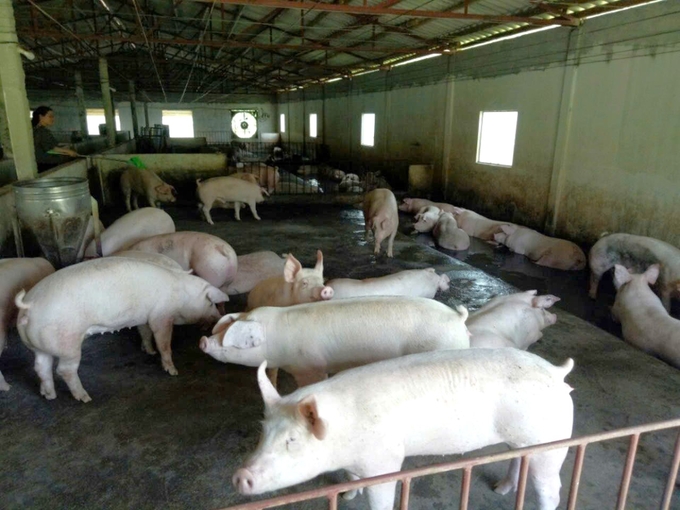
Pigs raised in a closed chain of Dong Tam Livestock and Service Cooperative.
At the end of last month, I had the opportunity to personally be led by Mr. Nguyen Dinh Tuong - Director of Dong Tam Livestock and Service Cooperative (Can Huu Commune, Quoc Oai District, Hanoi City) to visit his entire facility. A pork slaughter and processing facility without any unpleasant odors was my first impression. “Whether the food is delicious is one thing, but whether it is safe or not is another…”, I asked.
Hearing me bring up that issue, he nodded in agreement and said: "It's true that pigs raised with uncooked bran and vegetables and duckweed collected from ditches in the past have fragrant and delicious meat, but it's not safe because they can be infected with worms.
With my 20 years of experience in slaughtering, I have found that the reason why pigs raised by feeding them with bran and raw water fern in the past had intestines that were slippery is because there were a lot of worms in them. I have tried raising them before and found that it was completely possible to actively create this type of intestines by doing so, but because it was not safe for food, I gave up. Nowadays, pigs raised with processed bran and drinking clean water almost do not have intestines that are slippery even though the market price is several million VND/kg, but I still accept it...
In 2014, Mr. Tuong's farm was one of 37 farms across the city selected by a unit of the Hanoi Department of Agriculture and Rural Development to participate in a project to raise pigs using biological feed with a support level of 75% of biological feed and 30 breeding pigs. The project has brought about clean results for the environment, safe from epidemics, especially producing fragrant, delicious, firm, sweet pork products, completely different from pork raised using industrial feed.
Normally, many projects will not be continued in production after they end, however, he is aware of the effectiveness and difference of biosafety pig farming so he still persists in pursuing it. At first, he connected with a biofeed production company to buy it. Later, he realized that if he kept buying like that, he would not get high profits, so he researched how to mix the ingredients himself.
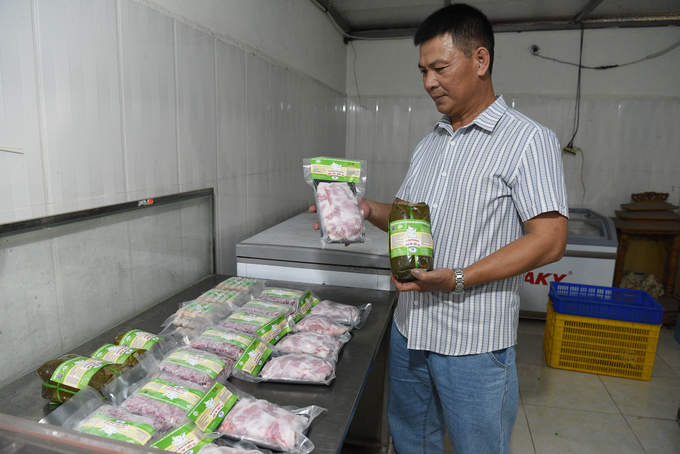
Mr. Nguyen Dinh Tuong - Director of Dong Tam Livestock and Service Cooperative with organic pork products. Photo: Duong Dinh Tuong.
At first, not many people knew about the quality of organic pork, so he accepted to sell it at the same price as regular pork to introduce it. This person bought it to try and then told the other person, gradually organic pork became a new trend accepted by consumers. Realizing that the market received it positively, in August 2016, he gathered many farm owners in the commune as well as some neighboring communes to discuss and establish Dong Tam Livestock and Service Cooperative. From there, a closed production chain was formed.
To create organic pork products, the input must be a food source selected from clean, natural agricultural products such as corn, bran, cassava, without using additives, colorants, or toxic chemicals. Secondly, the water source used must meet all permitted standards. The breeding process is closed at each stage, from creating a source of quality-assured breeds to raising, slaughtering, preliminary processing, packaging, and processing, all of which are undertaken by the Cooperative.
The cooperative periodically sends samples of products for analysis to check the meat quality. Pig feed ingredients include rice bran, corn, soybeans, barley bran, probiotics and are regularly vaccinated to prevent disease without using antibiotics, so raising pigs this way is very close to organic production methods.
During the period of 2016 - 2020, the Cooperative was fortunate to receive support and assistance from the Hanoi Department of Agriculture and Rural Development as well as the Quoc Oai District Agricultural Extension Station. In 2020, the support mechanism for the closed chain ended, but the Cooperative still stood firm thanks to its correct orientation from the beginning. From individual livestock farming, unstable due to disease and the market, up to now, the members of the Cooperative have controlled inputs and outputs with contracts signed all year round, creating a stable source of income and jobs.
Currently, the cooperative slaughters 3-5 pigs every day to supply clean food stores, generating billions in revenue each month. Although still modest, it is worth being proud of because it contributes to ensuring food safety for the community.
Currently, the Cooperative's main products include 3 types of processed pork, ham and sausage. In 2019, these products all achieved 4-star OCOP in Hanoi city and most recently, the Cooperative participated in 2 products of pork and ham in the OCOP council at Quoc Oai district level, achieving 3-star OCOP.
Source: https://nongsanviet.nongnghiep.vn/kien-dinh-nuoi-lon-an-toan-sinh-hoc-d407307.html


![[Photo] President Luong Cuong receives President of the Cuban National Assembly Esteban Lazo Hernandez](https://vphoto.vietnam.vn/thumb/1200x675/vietnam/resource/IMAGE/2025/9/30/4d38932911c24f6ea1936252bd5427fa)
![[Photo] Solemn opening of the 12th Military Party Congress for the 2025-2030 term](https://vphoto.vietnam.vn/thumb/1200x675/vietnam/resource/IMAGE/2025/9/30/2cd383b3130d41a1a4b5ace0d5eb989d)

![[Photo] The 1st Congress of Phu Tho Provincial Party Committee, term 2025-2030](https://vphoto.vietnam.vn/thumb/1200x675/vietnam/resource/IMAGE/2025/9/30/1507da06216649bba8a1ce6251816820)
![[Photo] General Secretary To Lam, Secretary of the Central Military Commission attends the 12th Party Congress of the Army](https://vphoto.vietnam.vn/thumb/1200x675/vietnam/resource/IMAGE/2025/9/30/9b63aaa37ddb472ead84e3870a8ae825)
![[Photo] Panorama of the cable-stayed bridge, the final bottleneck of the Ben Luc-Long Thanh expressway](https://vphoto.vietnam.vn/thumb/1200x675/vietnam/resource/IMAGE/2025/9/30/391fdf21025541d6b2f092e49a17243f)


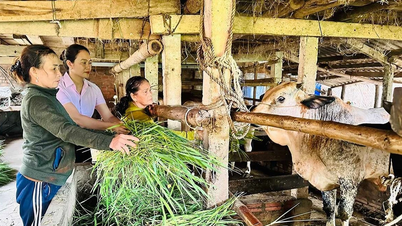







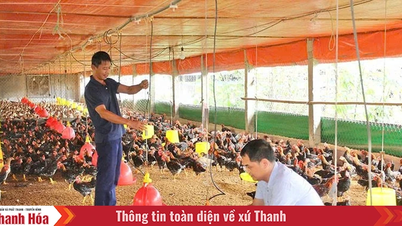
















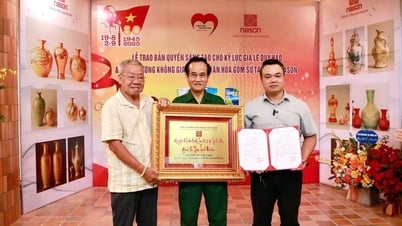















































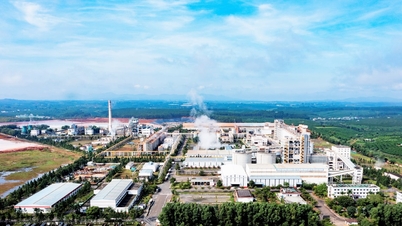























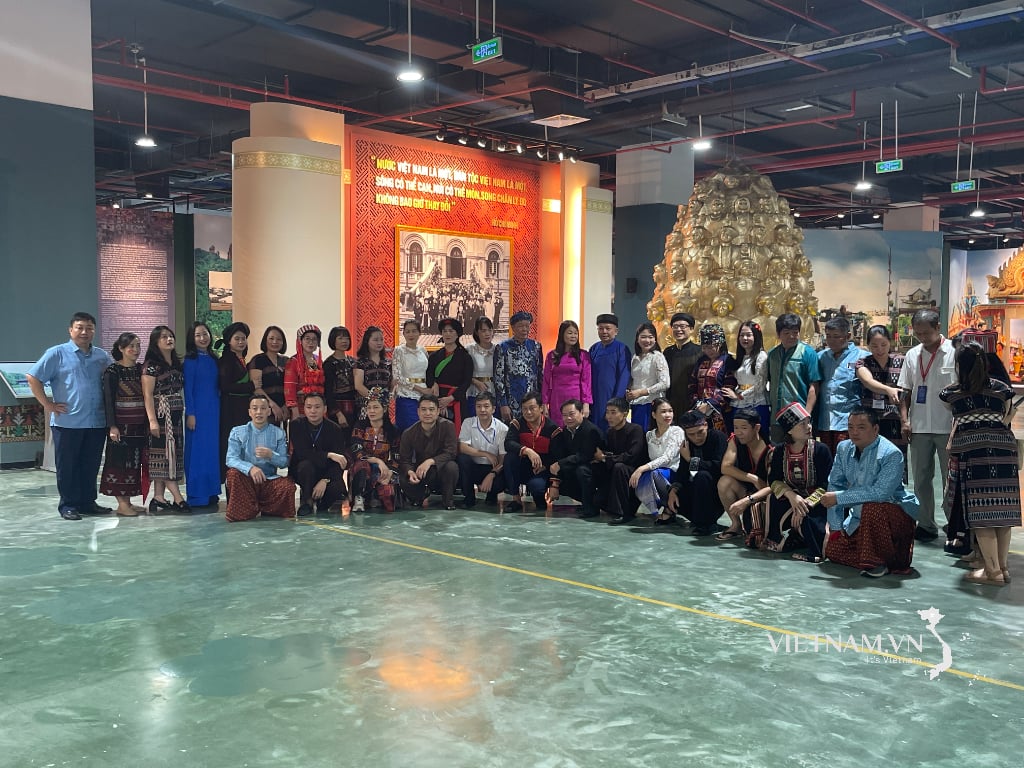
Comment (0)